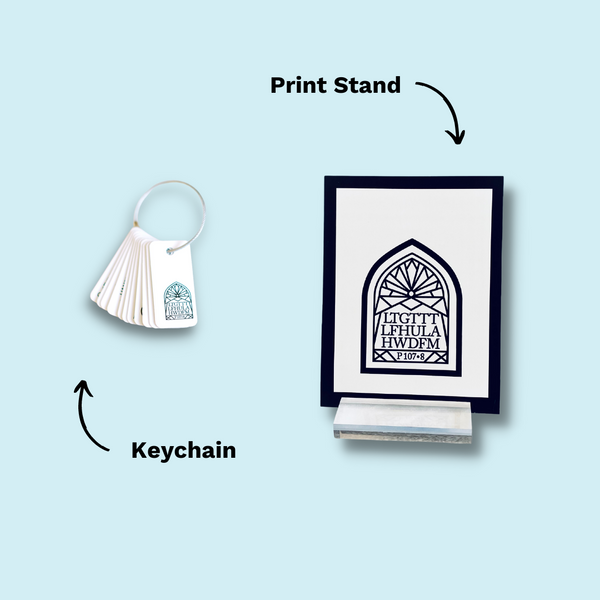EACH OF YOU SHOULD USE WHATEVER GIFT YOU HAVE RECEIVED TO SERVE OTHERS, AS FAITHFUL STEWARDS OF GOD'S GRACE IN ITS VARIOUS FORMS.
—1 PETER 4:10
Ten years ago, our family moved overseas to help with church planting amongst a population where less than one-half of one-percent of the people know Jesus as Savior. Not only is the population far from Christ, but their language is far from English. I don’t think I’ve ever felt less adequate, less relevant, or less helpful.
Without knowing the language when we arrived, I couldn’t teach in the women’s ministry. I couldn’t help with the children, because I didn’t know what they were saying. Taking meals to those who were sick was risky business because my cuisine was not their comfort food. Telling my neighbors about Jesus was impossible. The whole situation was embarrassing and downright depressing. I was supposed to be a full-time servant of the church and I felt I had no way to serve.
But you don’t have to be in a foreign country to feel this way. I’ve also felt it here at home. Maybe you have too.
Six Truths about Our Gifts
Maybe you’re new to Christianity and feel like you have much to learn before you can be of service. Or maybe you have a new baby or a home full of little ones and your strength is so sapped there’s no way you could do more. Maybe you feel like you don’t know enough, or do the right things, or say the right things to contribute to your church family. We’ve all walked through moments—and even years—of feeling inadequate.
And yet, the Apostle Peter’s instruction to us doesn’t come with any caveats. He says, “Each of you should use whatever gift you have received to serve others, as faithful stewards of God’s grace in its various forms” (1 Peter 4:10). There’s no, “if you’re well rested,” or “if you feel ready,” or “once you’ve learned enough,” or “when you arrive at a certain goal." Peter simply says, use your gifts.
There are six truths packed into this one verse, and they preach a whole sermon to you and me when we feel inadequate.
- First, Peter speaks to “each” of us. This verse is for every single Christian, not for those who have a special status.
- Second, the receiving of a gift is assumed. There’s no discussion of whether you and I have a gift to use to serve the church. Peter understands that we do.
- Third, the gift is meant to serve others. It’s meant to be active and out there working for the good of other people, not hidden or saved for later.
- Fourth, faithfulness—not results—is centered. If faith is being sure of what we hope for and certain of what we do not see (Hebrews 11:1), then faithfulness in using our gifts is a matter of trusting the Lord to use what he’s given us, even if we cannot see how it’s beneficial.
- Fifth, our gifts are a means of God’s grace, meaning they are a conduit or a carrier of God’s grace to others. Our gifts bring others good and God glory.
- Sixth, our gifts come in various forms. We are as diverse as God is creative. Our gifts come in as many shapes and sizes and colors as we do. They are all unique, good, and meant to shine the light on Jesus.
Shifting our Thinking
I have had the joy of serving the church on three different continents, and here is something I can say about us Christians in the wealthy West: we often view our spiritual gifts through a lens of productivity or platform. We prioritize making an impact for Christ. We start by asking, “What am I good at?” Even if it’s subconscious, we think God only uses those who are talented and capable. If we don’t measure up, we conclude we don’t have anything to offer.
But when it comes to spiritual gifts, our focus should not be on our own capabilities, but on God’s work in us and through us. They are called spiritual gifts precisely because they are from the Spirit and not ourselves.
Our verse from Peter this month says nothing about talent or platform, but rather God’s grace in various forms. The verse says nothing about skills or impact, but rather God’s gifts and our faithfulness. Is it possible that the inadequacy you and I sometimes feel comes from the way we wrongly frame what is useful to the church?
What if, rather than obsessing over what we have to offer, we simply offered up ourselves? What if we surrendered our whole selves—our days, our energy, our mouths, even our limitations and genuine inadequacies—and took God at his Word? What if we centered God’s power and goodness and call, rather than our own strength when we consider how to participate in the life of our church?
Truly, our God is looking for women who are surrendered to his Spirit, not women who are deemed capable by cultural standards.
A Comfort
Ultimately, this shift in our thinking is a comfort. When we wonder What can I give?, we place the burden on ourselves. But when we instead say, Lord I give you myself, we hand ourselves over to God’s good plan and we rely on him for the strength to accomplish whatever he’s called us to.
With this shift, the burden to produce an impact is placed in the Lord’s hands, where it belongs. Only God can change hearts. Only God can cause growth. There is real rest when we realize we don’t have to conjure up anything impressive. God simply asks us to surrender, to submit to his good plan, to trust that he will use us as his means of grace right where he has placed us.
Looking back on my time overseas, I can’t say how useful I was to the church there. In my flesh, I am tempted to fixate on my lack of measurable productivity with shame. But in such moments of inadequacy, I ask the Lord to remind me of what’s true. And the truth is, you and I have gifts, which God has given us, and when we steward them they will be a means of grace to others—not because of who we are, but because of who he is.





